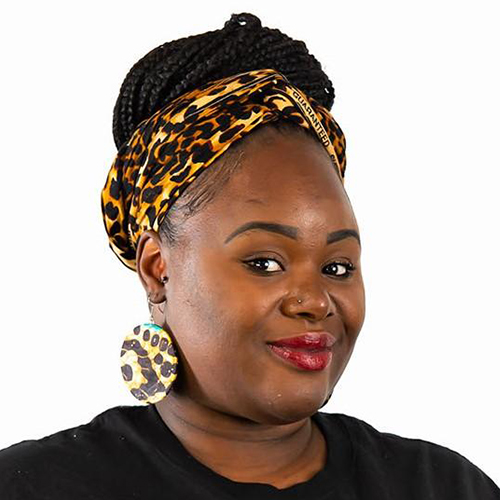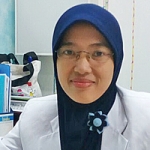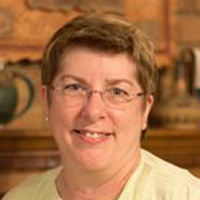 IBCLC Detailed Content Outline: Psychology, Sociology, and Anthropology Focused CERPs - Section V
IBCLC Detailed Content Outline: Psychology, Sociology, and Anthropology Focused CERPs - Section V
Access CERPs on Psychology, Sociology, and Anthropology for the IBCLC Detailed Content Outline recertification requirements. Enjoy convenient on-demand viewing of the latest Psychology, Sociology, and Anthropology focused IBCLC CERPs at your own pace.
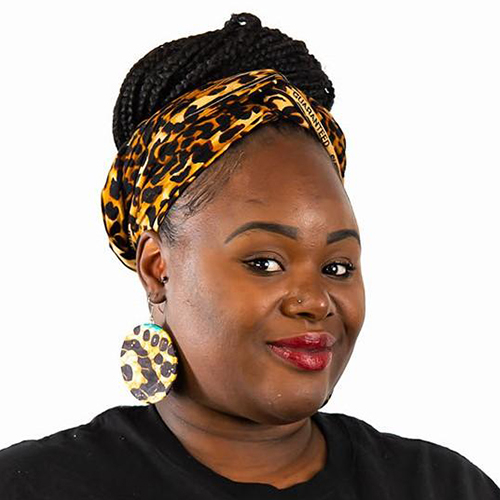

Brandi Gates-Burgess is a Lactation Consultant at Highland Hospital, Community Engagement specialist for the MILK Research Lab, serves on the Community Advisory Board of the UCSF Preterm Birth Initiative, and Co-chairs The Breastfeeding Cultural Outreach Taskforce (BCOT). Recently, Brandi transitioned from her 16-year career providing lactation support to families of the California WIC Program and decided to live her dream. She started her non-profit organization Breast Friends Lactation Support Services where she provides group lactation education and support to Black Families in the Bay Area. She is a mother to 4 breastfed children, wife and world traveler.
Topic: The Power of Mentorship - [View Abstract]
Most families plan to breastfeed during their pregnancy and are successful for the first month but fail to continue breastfeeding once they have returned to work. Although there is substantial evidence on factors that influence exclusive breastfeeding in the early postpartum period, there is a general lack of information to help mothers and lactating people continue to breastfeed after returning to work. When there is financial pressure combined with a lack of long-term, paid leave, many lactating parents must return to work shortly after the birth of their infant. When the workplace does not provide support, maternal employment becomes one of the major barriers to continued breastfeeding. There are many factors that play a role in the discontinuation of breastfeeding after returning to work, ranging from lack of support from the employer to the physical ability to express enough milk needed to satisfy baby. During this presentation we will address the lack of information and provide solutions to increase breastfeeding rates and duration after returning to work.
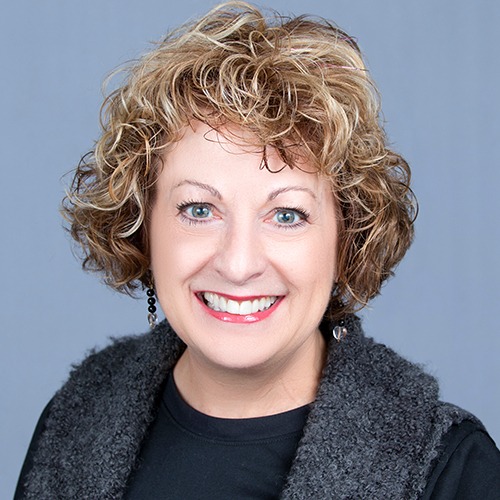
Lactation Choices Following Pre-and-perinatal Loss

Kathy Parkes is a sought-after speaker and webinar presenter as well as a published author. She has lived all over the world, settling in San Antonio, Texas after her Air Force husband retired. Kathy is a Registered Nurse with a Masters in Nursing Education and received her International Board Certified Lactation Consultant designation in 1992. Her private practice, Breastfeeding Perspectives, adds to her over 30 years of lactation experiences, which include WIC staff and clients, in-patient hospital work on L&D, postpartum, and NICU, taking a hospital to Baby-Friendly designation, setting up a lactation visitation program for both a home health agency and for the largest birth doula organization in San Antonio, and providing home and office lactation visits for private clients. She specializes in tethered oral tissues (tongue-and-lip ties), milk supply problems, multiples, and preterm/late preterm infants.
On the fun side, Kathy met her husband of 47 years as she was jumping out of the airplane he was flying. (You could say she fell for him!) She loves animals, traveling, and gardening. Most of all, she loves teaching others about breastfeeding.
Topic: How to Start a Private Lactation Practice - [View Abstract]
Topic: I QUIT!! Burnout, compassion fatigue, and self-care for the healthcare professional - [View Abstract]
Topic: Lactation Choices Following Pre-and-perinatal Loss - [View Abstract]
Topic: Powerful Relationships: How Babies (and Parents) Learn To Love - [View Abstract]
Professionals working with new mothers and infants are drawn to the field by compassion. However, when a loss occurs, whether prenatally or following birth, many of us are unprepared to deal with the loss ourselves, or in assisting the family. One of the many decisions that needs to be made in this time of grief is how the mother will deal with lactogenesis II, the surge of breast milk at two to four days. This session will provide an overview of anatomy and physiology of milk production, and discuss various choices the mother can make regarding how she will deal with the milk supply that occurs. To close the session, the speaker will briefly discuss self-care for professionals to aid recovery from such a loss.
View Details / Enroll
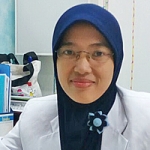

I am a wife and mother of two breastfed children. I was a general practitioner and am currently more focused on helping mothers to breastfeed. I work at Puri Cinere Hospital and Kemang Medical Care Women and Children as a lactation counselor. I currently on leave due to accompany my husband school in United State for his PhD programs. Since 2009, I've been helping mothers who have difficulties breastfeeding. It is a delight when we meet during tough times, then met again once their breastfed child are big and smart, and most importantly successfully breastfed. My desire is to help mothers to breastfed wherever I live in this world.
Good doctor–patient communication is essential for positive health care outcomes. Ideal doctor–patient communication generally is reflected in a partnership communication style. However, in Southeast Asian settings, we often see a more one-way style with little input from the patient.
Helpline services is breaking the ice, and is considered a new option modality for patients in Indonesia. The ease in contacting medical professionals through phone and text messages seems more comfortable, personal and inexpensive.
Breastfeeding support via a helpline helps mother to feel reassured, confident and more determined to continue breastfeeding, and in majority of occasions resolves their particular concerns.
Lactation Clinic in Puri Cinere Hospital, Depok, West Java, Indonesia was established in August 2011 and operated a helpline since the beginning of its establishment. Helpline service is open 24 hours daily, through phone, text messages, whatsapp, or blackberry messenger directly to doctors who are also breastfeeding counselors. There are six doctors who take turns every month to receive calls and reply to messages. Helpline numbers are distributed to patients during post natal rounds or at patients doctors appointments in lactation clinic.
A longitudinal study conducted in March to December 2014 shows 202 helpline cases in 9 months. There were 29 cases (14%) questioning EBM handling, 24 cases (12%) asking about complementary feeding, 19 cases (9%) of infant stool, 19 cases (9%) medication and mother's milk, 15 cases (7%) frenotomy after care and other various problems. 63% cases were successful managed via helpline, and 37% cases were referred to the Lactation Clinic to get further help.
There were many cases resolved through helpline calls and messages. High success rate of helpline management shows that helpline program is effective to help mothers and resolved their particular concerns; especially in Indonesia.

View Details / Enroll
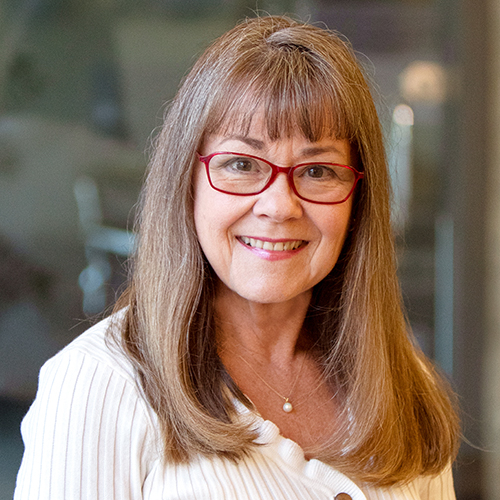
Laying the Foundation for Self-Discipline With Infants and the Very Young

Ruth Anne Hammond is the author of Respecting Babies: A Guide to Educaring for Parents and Professionals (Zero to Three, 2019), and is a consultant for infant/toddler care and education. Having been mentored by Magda Gerber, founder of Resources for Infant Educarers, she teaches and mentors parents and professionals in the US and abroad. She served on RIE’s board of directors for many years and was President from 2006 through 2011. She was on the faculty of Pacific Oaks College & Children’s School as both a member of the Senior Adjunct Faculty and a Master Teacher in the Infant/Toddler-Parent Program for 17 years. She is currently on the board of directors of Families Forward Learning Center in Pasadena, CA and serves as chair of the Programs Advisory Committee. Ms. Hammond earned a Bachelor of Fine Arts in Dance from Southern Methodist University and a Master of Arts in Human Development, specializing in Infant/Toddler Studies and Leadership in Education, from Pacific Oaks College. She is a longtime member of psychologist Allan Schore’s interpersonal neurobiology study group.
How a child is cared for in the earliest months and years of life, pre-birth to three or so, can foster the implicit development of what will be seen as self-discipline in the preschool years and later. In this workshop, participants will have the opportunity to connect the dots between respectful, attuned caregiving, self-initiated activity, authentic communication and the development of self-regulation, the necessary precursor to healthy self-discipline.
We will explore the basics of Dr. Allan Schore’s Regulation Theory, which integrates Bowlby’s classical Attachment Theory and modern interpersonal neurobiology, as well as practical ways to put it into practice in the home or anywhere infants and young children are being cared for. The Educaring Approach, which will be referred to, offers replicable strategies and tools for building the secure relationships that form the basis for children to develop into to peaceful, cooperative and confident people who exhibit the benefits of self-discipline.

Leadership Skills in Lactation: Make Extraordinary Things Happen

Paulina is the mother of three multicultural Latino children and Project Director for Lifespan Local. Paulina earned her BS in Psychology from the Pennsylvania State University, a MS in Organizational leadership from the University of Denver and is completing her PhD in Health and Behavioral Sciences at the University of Colorado - Denver. Paulina has over 18 years of experience working with families with young children. As a Maternal Child Health specialist for Jefferson County Public Health, she developed a NICU follow-up home visitation program and the pediatric emergency preparedness plan, co-founded and coordinated the Conectando Network (former Adelante Jeffco), established community navigation and lactation support groups focused on the Latino Spanish speaking community, and lead other initiatives to support leadership and partnerships among communities and organizations. During the COVID-19 pandemic, she managed the new program Whole Community Inclusion to ensure the pandemic response and recovery implementation included health equity practices that recognize the needs and the strengths of priority populations in the county. Her areas of current work include promoting perinatal and infant mental health along the continuum of care; building community capacity to navigate health and education systems; facilitating organizational change to embrace linguistic and culturally responsive practices; and establishing community-placed participatory programs to strengthen communities. She likes to be with people, learn from and with others, and connect passions for meaningful work.
Topic: From the NICU to the home: mother’s experiences - [View Abstract]
Topic: Leadership Skills in Lactation: Make Extraordinary Things Happen - [View Abstract]
Topic: Liderazgo en Lactancia - Para Alcanzar Metas Extraordinarias - [View Abstract]
Topic: Nursing A Preemie, Perspectives For Lactation Supporters and Professionals - [View Abstract]
Many of us come to work in breastfeeding envisioning a world where mothers and babies can breastfeed without barriers; however, we quickly learn that breastfeeding challenges go beyond latching and positioning.
To effectively support a breastfeeding/chestfeeding family, we have to support the parents, the extended family, the primary care provider, the workplace culture, the childcare, and the community; in summary, supporting one dyad can be an intervention to the whole social system. Indeed, breastfeeding advocacy is about building systems and consistently leading cultural changes to more deeply reinforce human feeding as the norm.
Kouzes and Posner (2012) state: “if you want to have a significant impact on people, on organizations, and oncommunities, you’d be wise to invest in learning the behaviors that enable you to become the very best leader you can.” With that in mind, lactation consultants and lactation advocates would benefit by learning leadership behaviors and skills that will support their efforts towards cultural change, inspire shared visions, challenge processes, becoming strategic advisors, and leading from the inside out.
Lactation leaders would benefit by being able to align values and beliefs with actions and strategies to promote breastfeeding as part of whole community development and as a public health strategy. In that way, lactation has a presence in early childhood initiatives, maternal and infant health, mental health programs, and any health, social, educational intervention.
Want to normalize lactation? Join this interactive session and become the leader who can make extraordinary lactation things happen in your community.

Liderazgo en Lactancia - Para Alcanzar Metas Extraordinarias

Paulina is the mother of three multicultural Latino children and Project Director for Lifespan Local. Paulina earned her BS in Psychology from the Pennsylvania State University, a MS in Organizational leadership from the University of Denver and is completing her PhD in Health and Behavioral Sciences at the University of Colorado - Denver. Paulina has over 18 years of experience working with families with young children. As a Maternal Child Health specialist for Jefferson County Public Health, she developed a NICU follow-up home visitation program and the pediatric emergency preparedness plan, co-founded and coordinated the Conectando Network (former Adelante Jeffco), established community navigation and lactation support groups focused on the Latino Spanish speaking community, and lead other initiatives to support leadership and partnerships among communities and organizations. During the COVID-19 pandemic, she managed the new program Whole Community Inclusion to ensure the pandemic response and recovery implementation included health equity practices that recognize the needs and the strengths of priority populations in the county. Her areas of current work include promoting perinatal and infant mental health along the continuum of care; building community capacity to navigate health and education systems; facilitating organizational change to embrace linguistic and culturally responsive practices; and establishing community-placed participatory programs to strengthen communities. She likes to be with people, learn from and with others, and connect passions for meaningful work.
Topic: From the NICU to the home: mother’s experiences - [View Abstract]
Topic: Leadership Skills in Lactation: Make Extraordinary Things Happen - [View Abstract]
Topic: Liderazgo en Lactancia - Para Alcanzar Metas Extraordinarias - [View Abstract]
Topic: Nursing A Preemie, Perspectives For Lactation Supporters and Professionals - [View Abstract]
Muchos de nosotros comenzamos a trabajar en lactancia visualizando un mundo donde las madres y los bebés pueden amamantar sin barreras; sin embargo, aprendemos rápidamente que los desafíos de la lactancia materna van más allá del prendimiento y el posicionamiento.
Para apoyar efectivamente a una familia que amamanta, debemos apoyar a los padres, a la familia extendida, al doctor, a la cultura del lugar de trabajo, a la guardería y a la comunidad; en resumen, apoyar a una familia se transforma en la oportunidad para afectar todo el sistema social. De hecho, promover la lactancia se trata de construir sistemas y liderar cambios culturales para reforzar más profundamente la alimentación con leche humana como la norma.
Kouzes y Posner (2012) afirman: "si desea tener un impacto significativo en las personas, en las organizaciones y en las comunidades, lo más recomendable sería invertir en aprender comportamientos que le permitan convertirse en el mejor líder que pueda ser". Con esto en mente, los consultores y asesores de lactancia se beneficiarían aprendiendo conductas de liderazgo y habilidades que apoyarán sus esfuerzos hacia el cambio cultural, inspirarán visiones compartidas, desafiarán procesos, se convertirán en asesores estratégicos y liderarán desde adentro hacia afuera.
Los líderes en el mundo de la lactancia se beneficiarían de poder alinear valores y motivaciones con acciones y estrategias para promover la lactancia como parte del desarrollo de toda la comunidad y como una estrategia de salud pública. De esta forma, la lactancia tiene presencia en las iniciativas para la primera infancia, la salud materna e infantil, los programas de salud mental y cualquier intervención sanitaria, social y educativa.
¿Quiere normalizar la lactancia? Participe de esta presentación y aprenda a liderar iniciativas de lactancia extraordinarias en su comunidad.
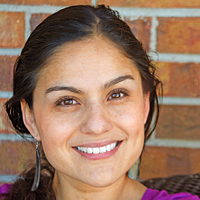
View Details / Enroll

Lies and Lactation Cookies: Raising the Bar for Breastfeeding Support Groups Online

Amy Barron Smolinski holds an MA from Union Institute and University, where her thesis explored re-emerging Sacred Feminine manifestations in the lives of contemporary women. She is the Executive Director of Mom2Mom Global, a network of breastfeeding peer support, education, and advocacy for military families. She works with breastfeeding dyads in a variety of settings, from inpatient postpartum and NICU to home visits, telephone, and online consulting as an Advanced Lactation Consultant and Certified Lactation Counselor. Supporting breastfeeding families has shown her how each parent’s breastfeeding journey with each of her children is a reclamation of her connection to her inner wisdom and power. Amy is an actress, director, and professional voice artist in Germany, where she resides with her husband and four sons, all of whom breastfed to self-weaning.
Topic: When Tears Flow and Milk Doesn’t: Support Through Breastfeeding Grief - [View Abstract]
Millennial parents live and learn on social media. Yet, much of the information available online, even through lactation “support” groups, is outdated, inaccurate, and counterproductive. Millennial parents, particularly mothers, also place pressure on themselves to get parenting “right,” which leads to a complex and dangerous blend of anxiety, guilt, and fear surrounding all of their parenting decisions. Facebook closed groups can be an effective platform for creating a virtual breastfeeding support group, but just as in real life, the groups must be properly facilitated. This presentation offers step by step guidance to creating, setting up, and maintaining a Facebook breastfeeding support group. We’ll deconstruct common controversies that occur within social media, and analyze conflict management strategies to create safe spaces online.

View Details / Enroll

View Details / Enroll

Love Makes A Family: Supporting LGBTQIA+ and Gender Non-Conforming Families

Jeanette McCulloch, IBCLC, is the co-founder of BirthSwell, spreading birth (and breastfeeding and MCH) genius, changing policy, and building businesses and organizations using strategic digital communications. With more than 20 years experience in communications and women’s health advocacy, she provides consultation to local, statewide, national, and international birth and breastfeeding organizations and small businesses. She has published research and spoken at national conferences on reaching millennial parents online. She is passionate about health equity and ensuring that all families have access to high-quality, culturally sensitive birth and lactation care. Jeanette unplugs with her partner and two children while splashing around in the gorges of her hometown, Ithaca, NY.
As lactation professionals and supporters, we will encounter LGBTQIA+ and gender non-conforming families in health care settings, private visits and support groups. Deepen your knowledge of the unique needs of queer, trans and gender-non conforming parents during lactation. This session allows participants to explore our awareness, ask questions in a safe space and develop the tools to meet all families where they are.

View Details / Enroll

View Details / Enroll


Cathy Carothers is co-director of Every Mother, a non-profit organization providing lactation training for health professionals. An International Board Certified Lactation Consultant since 1996, she has provided more than 600 training events and conference presentations in every U.S. state/territory and several countries. She is past president of the International Lactation Consultant Association (ILCA), a fellow of ILCA, and past chair of the U.S. Breastfeeding Committee. She chairs the design team for the equity initiative in the lactation consultant profession, and chairs the Monetary Investment for Lactation Consultant Certification (MILCC), which works to reduce financial barriers to the IBCLC exam. She has directed several national breastfeeding promotion and support initiatives for the U.S. federal government, including the national USDA WIC peer counseling program, and national workplace support initiatives through the U.S. Department of Health and Human Services. She was honored with the 2014 National Leadership Award from the National WIC Association.
Topic: Dealing With the Tough Ones: Counseling in Difficult Situations - [View Abstract]
Topic: Making it Work: Supporting Nursing Moms at Work - [View Abstract]
There has to be an easier way! Many women returning to work after the birth of a baby find that the challenges are great…especially if they are breastfeeding, and the challenges range from lack of time and space to emotional and physical demands. The challenges are even greater for low-wage workers employed in more challenging, non-office settings, where private space options are much more difficult to identify, and where women often feel devalued and lack of confidence to speak up about their needs. For many women, discontinuing breastfeeding seems like the easiest “solution,” impacting maternal and infant health. This session will address the key issues of women returning to work, with workable solutions for supporting women with time and space for milk expression at work, and resources that can help.
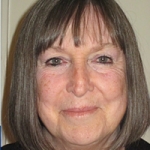

Pamela Morrison has worked with breastfeeding mothers and babies for 30 years. She served as a La Leche League Leader in Harare, Zimbabwe from 1987 before certifying as the first IBCLC in the country in 1990. She worked in private practice until 2003, before moving to Australia and then to England. She served for many years on the Zimbabwean National Breastfeeding Committee and on the BFHI Task Force. She has subsequently served as Co-coordinator of the WABA Task Forces on Infants Nutrition Rights and on Breastfeeding and HIV. Pamela continues to write and speak for the preservation and protection of breastfeeding in challenging situations.
In biological terms, successful breastfeeding demands that the baby survives and thrives on his mother’s milk. “Not-enough-milk” (either real or perceived) has long been recognized as the most common reason why mothers abandon breastfeeding. Ways to identify for the mother whether a baby is “getting enough” are discussed. The causes of inadequate breastmilk intake include physiological/anatomical conditions in mother/baby, poor lactation management or other more obscure causes. While planning interventions to enhance breastmilk production and improve infant intake, it is important to protect the baby’s nutritional status. Simultaneously implementing strategies to increase the mothers’ breastmilk supply while caring for a high-need baby can be immensely challenging. Each client will need constant support, reassurance and re-evaluation. Turning such a difficulty around, with the goal of eventually returning to exclusive breastfeeding, can be one of the most fulfilling and rewarding situations that an IBCLC can work with.



